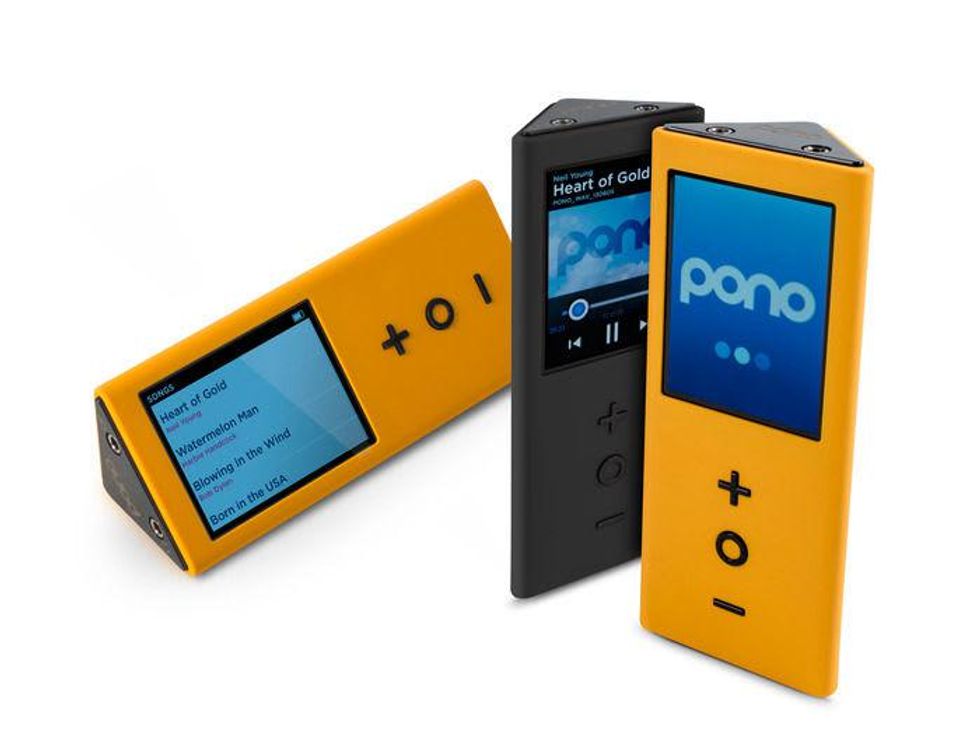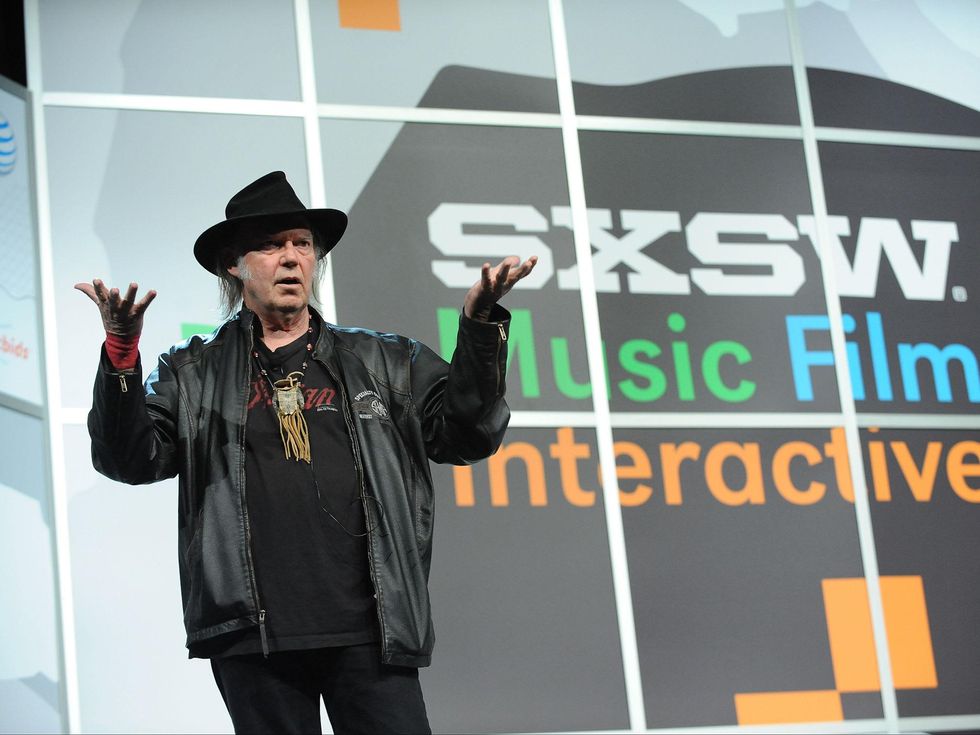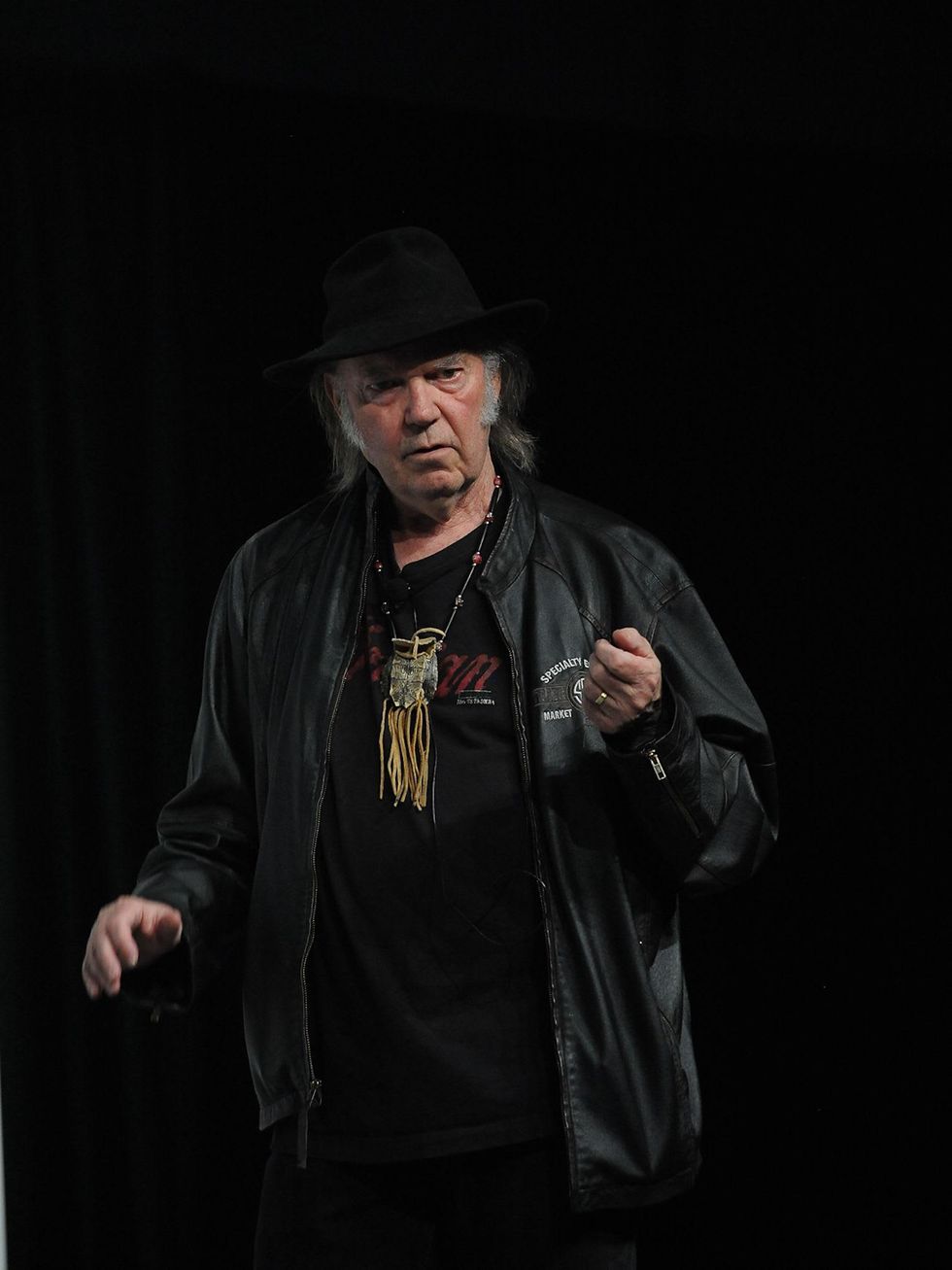Music Magic
Neil Young’s crusade to save music takes center stage with Pono announcement at SXSW
“Rescuing an art form is not something that’s of a high priority for the investment community,” Neil Young said to a crowd of music aficionados packed into his SXSW interview late Tuesday afternoon. The group wasn’t there to learn about his career, but to hear about his crusade to save music.
On Tuesday, Young and the folks behind Pono, a new music system aimed at enhancing the sound quality of digital recordings, launched a Kickstarter campaign to secure final funding for the revolutionary product.
Young spoke of the impetus for creating the system, a need that stemmed from the decreasing quality of digitally formatted recordings. The problem, which started in the ‘80s with the CD, hit its lowest point, in his opinion, with the introduction of the MP3.
“[Consumers] were buying wallpaper, they were buying background sounds, they were buying Xeroxes of the Mona Lisa.”
“That’s when the recording industry really went into duress,” he said. These digital formats compressed — and essentially discarded — the breadth of studio recordings. “This vibrant, creative, kind of whole culture started to go away, and it was because of the MP3 and the cheapening of the quality [of music].”
No longer could you turn to your favorite album, play it in analog and hear the layers of the recordings in their true forms. “We were selling shit,” Young said. “[Consumers] were buying wallpaper, they were buying background sounds, they were buying Xeroxes of the Mona Lisa.”
But, as Young pointed out, you wouldn’t be listening to an album anyway, because in the digital heyday, albums had no value — only individual tracks were worth purchasing. “I love every note on every song on every record,” Young lamented. “They meant something to me. They’re a family of songs that are telling a story of how I was feeling.”
After witnessing decades of the degradation of music, Young stepped in with a product that could revolutionize how we experience the art form. “What we decided to do was come out with a new system,” he said. Pono, a handheld digital device that looks like a triangular iPod, plays back “whatever the artist decided to do” at the time of the recording.
So, music that was recorded years ago at a higher resolution (Aretha Franklin’s “Respect” for instance), can now be played back with its original magnitude and depth, not at the dumbed-down digital level we’re used to experiencing. It’ll bring you the reality of what the musician did in the studio, Young said.
The system includes the player, as well as an iTunes-esque store where you can buy music, but the two are not mutually exclusive. Digital recordings already in your library can be imported and played back on the Pono at their original recording level. Pono can also plug into your stereo system, said Young, and “make it sound like God.”
If the Kickstarter reaction is any indication, Young and his team are fighting the good fight. In just one day, Pono's campaign reached more than $1.6 million — double its original goal of $800,000. With Pono, Young promises to reinstate the magic of music by restoring it to its purest form.
“That’s where the magic lives — in the air,” he said, “and if you take the air away, you just can’t breathe any more.”





